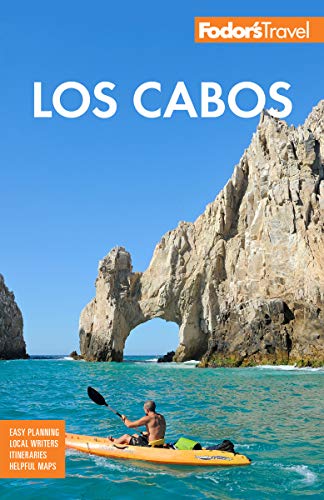Health
Food and Drink
In Mexico the biggest health risk is turista (traveler's diarrhea) caused by consuming contaminated fruit, vegetables, or water. To minimize risks, avoid questionable-looking street stands and bad-smelling food even in the toniest establishments; and if you're not sure of a restaurant's standards, pass up ceviche (raw fish cured in lemon juice) and raw vegetables that haven't been, or can't be, peeled (e.g., lettuce and tomatoes).
In general, Los Cabos does not pose as great a health risk as other parts of Mexico. Nevertheless, watch what you eat, and drink only bottled water or water that has been boiled for a few minutes. Water in most major hotels is safe for brushing your teeth, but to avoid any risk, use bottled water. Hotels with water-purification systems will post signs to that effect in the rooms.
When ordering cold drinks at establishments that don't seem to get many tourists, skip the ice: sin hielo. (You can usually identify ice made commercially from purified water by its uniform shape.)
Stay away from uncooked food and unpasteurized milk and milk products. Mexicans excel at grilling meats and seafood, but be smart about where you eat—ask locals to recommend their favorite restaurants or taco stands, and if you have the slightest hesitation about cleanliness or freshness, then skip it. This caution must extend to ceviche, which is a favorite appetizer, especially at seaside resorts. The Mexican Department of Health warns that marinating in lemon juice does not constitute the "cooking" that would make the shellfish safe to eat. Fruit and licuados (smoothies) stands are wonderful for refreshing treats, but again, ask around, be fanatical about freshness, and watch to see how the vendor handles the food. Mexico is a food-lover's adventureland, and many travelers wouldn't dream of passing up the chance to try something new and delicious.
Mild cases of turista may respond to Imodium (known generically as loperamide), Lomotil, or Pepto-Bismol (not as strong), all of which you can buy over the counter. Keep in mind though, that these drugs can complicate more serious illnesses. You'll need to replace fluids, so drink plenty of purified water.
Chamomile tea (té de manzanilla) and peppermint tea (té de menta/hierbabuena) can be good for calming upset stomachs, and they're readily available in restaurants throughout Mexico.
It's smart to bring down a few packets of drink mix, such as EmergenC, when you travel to Mexico. You can also make a salt-sugar solution (½ teaspoon salt and 4 tablespoons sugar per quart of water) to rehydrate. Drinking baking soda dissolved in water can neutralize the effects of an acidic meal and help with heavy indigestion or an upset stomach. It might also help prevent a painful hangover if taken after excessive drinking.
If your fever and diarrhea last longer than a day or two, see a doctor—you may have picked up a parasite or disease that requires prescription medication.
Divers' Alert
Do not fly within 24 hours of scuba diving.
Shots and Medications
According to the U.S. National Centers for Disease Control and Prevention (CDC), there's a limited risk of dengue fever and other insect-carried or parasite-caused illnesses in some rural parts of Mexico, though Baja California Sur is not one of the major areas of concern.
Health Information
National Centers for Disease Control & Prevention (800/232–4636 international travelers' health line. www.cdc.gov/travel.)
World Health Organization (41–22/791–2111. www.who.int.)
Medical Insurance and Assistance
Consider buying trip insurance with medical-only coverage. Neither Medicare nor some private insurers cover medical expenses anywhere outside the United States. Medical-only policies typically reimburse you for medical care (excluding that related to pre-existing conditions) and hospitalization abroad, and provide for evacuation. You still have to pay the bills and await reimbursement from the insurer, though.
Another option is to sign up with a medical-evacuation assistance company. Membership gets you doctor referrals, emergency evacuation or repatriation, 24-hour hotlines for medical consultation, and other assistance. International SOS Assistance Emergency and AirMed International provide evacuation services and medical referrals. MedjetAssist offers medical evacuation.
Medical Assistance Companies
AirMed International (800/356–2161 In U.S.; 205/443–4840 From Mexico. www.airmed.com.)
International SOS Assistance Emergency (800/523–8662. www.internationalsos.com.)
MedjetAssist (800/527-7478. www.medjetassist.com.)
Medical-Only Insurers
International Medical Group (800/628–4664. www.imglobal.com.)
Wallach & Company (800/237–6615 or 540/687–3166. www.wallach.com.)




